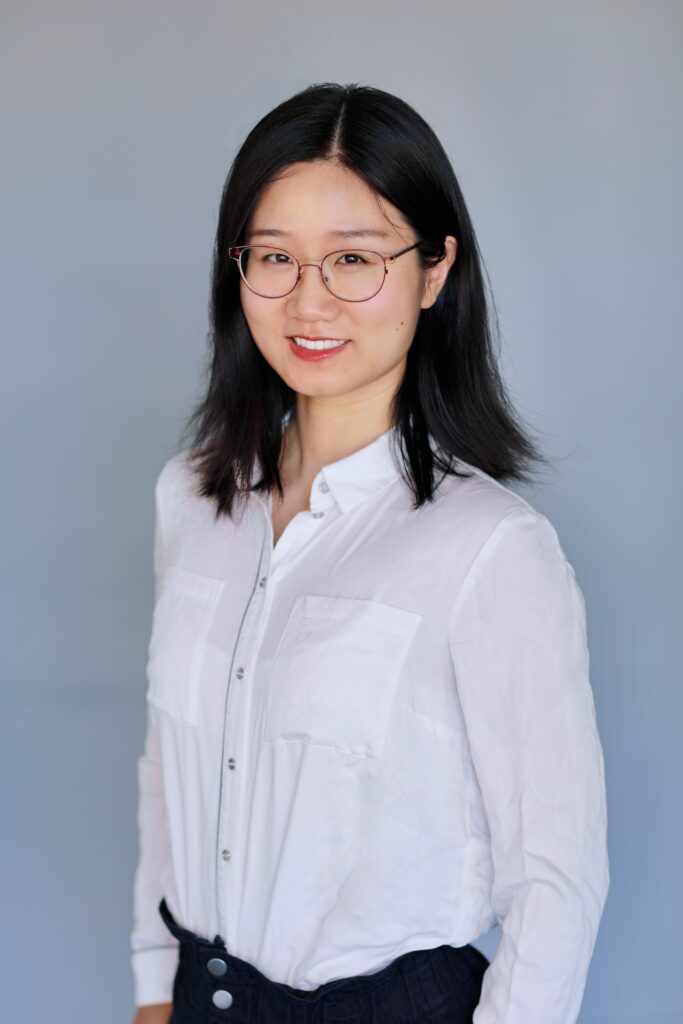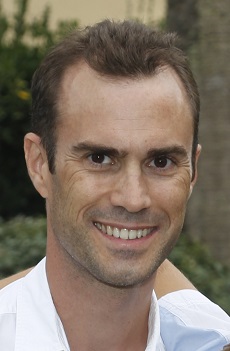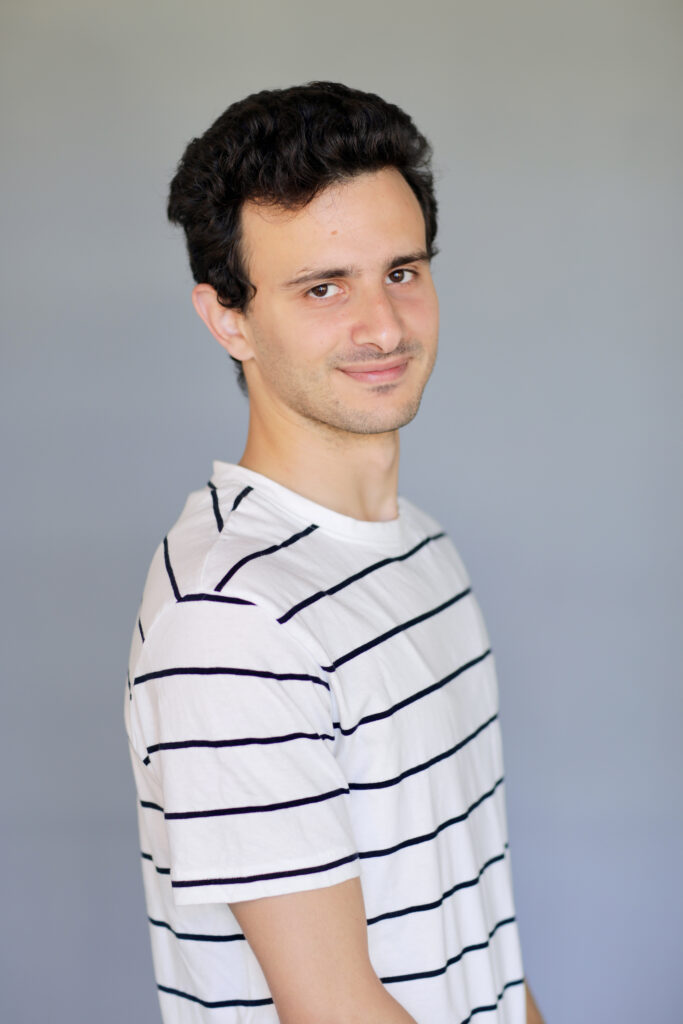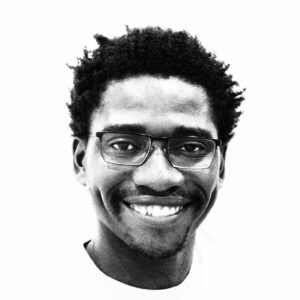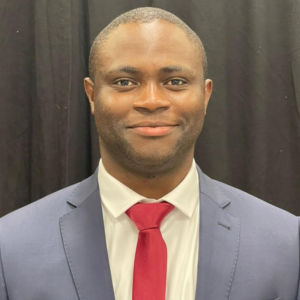PhD seminars – 27 march, 2023
Flash presentation Enrico Fiasché (Acentauri team)
Scientific presentation – Yingyu Yang (Epione team) – Artificial intelligence for automatic cardiac function analysis
2D echocardiography(ECHO) and electrocardiogram(ECG) are two popular and cost-efficient tools for cardiac dysfunction diagnosis. Automatic solutions that could effectively and efficiently analyze cardiac functions are highly desired in clinical situations and portable diagnosis scenarios. For echocardiography analysis, we use neural networks to perform segmentation and motion tracking tasks, with the intention to extract important cardiac indexes automatically. However, these tasks are non-trivial since ultrasound images usually suffer from poor signal-to-noise ratio, boundary ambiguity and out of view problems. We integrate contour loss and poly-affine transformation into the two tasks respectively, which greatly increased the robustness and performance of each task. For electrocardiogram analysis, we pass through a wave decomposition task to obtain explainable parameters. A cascaded network is designed to fulfill such a goal in an unsupervised way. The effectiveness and robustness of our proposed method was demonstrated through evaluation across four different datasets.
PhD seminars – 6 march, 2023
Researcher daily life – How to give a good presentation par Dr Arnaud Legout (DIANA team)
PhD seminars – 27 february, 2023
Flash presentation: Yanis Aeschlimann from Cronos team!
Introducing MOMI – 2023: Smart Environment
Scientific talk – Younes Ben Mazziane (Neo) – Analyzing Count Min Sketch with Conservative Updates
Abstract: Count-Min Sketch with Conservative Updates (CMS-CU) is a popular algorithm to approximately count items’ appearances in a data stream. Despite CMS-CU’s widespread adoption, the theoretical analysis of its performance is still wanting because of its inherent difficulty. In this paper, we propose a novel approach to study CMS-CU and derive new upper bounds on both the expected value and the CCDF of the estimation error under an i.i.d. request process. Our formulas can be successfully employed to derive improved estimates for the precision of heavy-hitter detection methods and improved configuration rules for CMS-CU. The bounds are evaluated both on synthetic and real traces.
PhD seminars – 6 february, 2023
Round table: The potential careers at inria after the PhD
We don’t always know what we want to do after our PhD. This round table is meant to present the potential positions you can held at INRIA after your PhD.
First Manuel Serrano, from the Comité d’Evaluation (CE), will present the competitive examinations to become a researcher or engineer at inria and the purpose of the CE. In short, the CE is:
- in charge of organizing Inria’s teams evaluation
- in charge of running all the national recruiting and promotion juries.
- participates in all local recruiting campaigns.
Then, Anthony Schoof, the Head of Transfer, Innovation and Partnerships will present the Inria Start-up Studio program and its benefits!
Finally, we have also invited several new engineers, researchers and members of the start-up studio to share their experiences with us:
- Jenny Kartsaki: Research and Development Engineer at the NeuroMod Institute, Université Cote d’Azur in collaboration with the SED (Service d’Expérimentation et de Développement) Inria
- Côme Lebreton: Engineer in ABS team
- Romain Tetley: Engineer transfert and Innovation
- Francesca Casagli: Permanent researcher in the BIOCORE team
- Antonia Machlouzarides-Shalit: previous member of INRIA start-up studio and CEO of NeuroPin
2020_0330-Inria_Startup_Studio (2)

PhD seminars – 23 january, 2023
Scientific presentation: Walid Djema – Biocore/Green owl team
Control of bio-processes

Flash presentations:
Tom Swagier (Epione team)
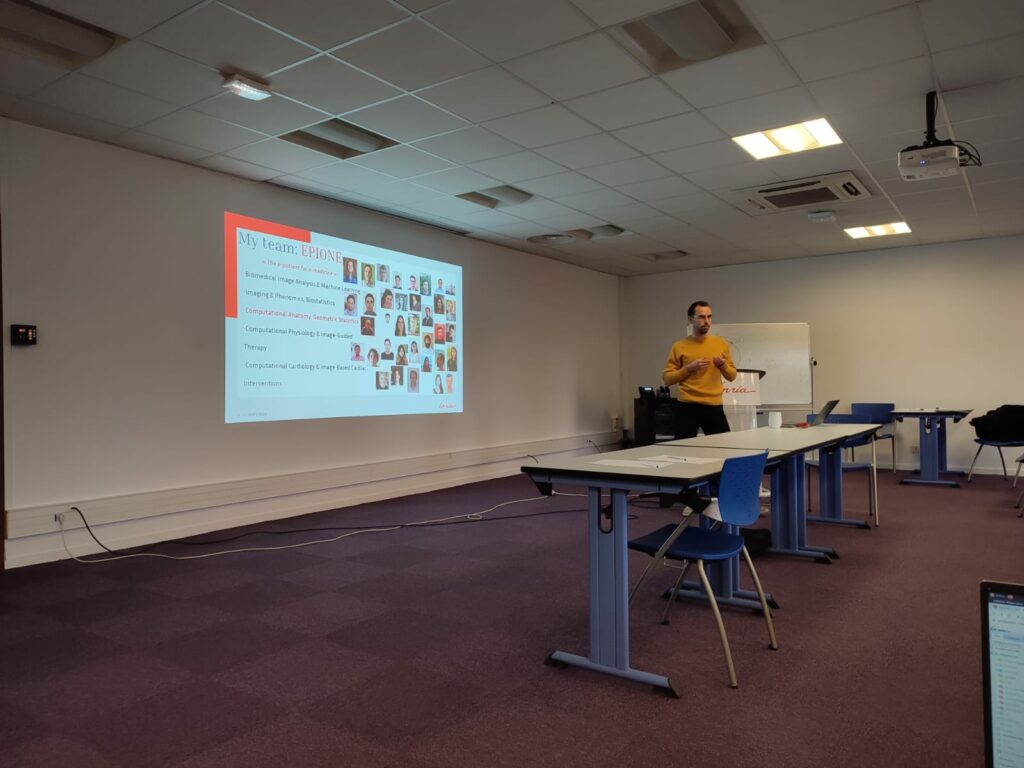
Kilian Burgi (Masai team)
PhD seminars – 9 january ,2023
Masimba Nemaire – Factas team
Title: Silent L^p magnetisations
Abstract:
In paleo-magnetic and geo-magnetic studies, under the quasi-static approximation of Maxwell’s equations, magnetizations inside rocks are recovered from measurements of magnetic fields outside rock samples.
This problem is ill-posed as there exist magnetizations that produce null magnetic fields outside the rock samples, these magnetizations are called silent magnetizations. We model magnetizations as [Lp(Ω)]n-vector-fields for n ≥ 3, 1 < p < ∞ with Ω ⊂ Rn a bounded open set. Using the Helmholtz decomposition of [Lp(Rn)]n we characterize silent
magnetizations. Any two magnetizations that differ by a silent magnetization are said to be equivalent magnetizations, using dual maximization problems and duality mappings we characterize norm-minimizing equivalent magnetizations given any [Lp(Ω)]n -magnetization.
Using the characterizations of silent and norm-minimizing equivalent magnetizations, we extended the classical Helmholtz decomposition of [Lp(Ω)]n-vector-fields to a three-term decomposition that holds for any open domain and for 1 < p < ∞. In the case n=3, Ω that is C1,1 and simply connected, we propose an iterative procedure that solves a p-Laplace Neumann and a p-curl-curl system to get the norm-minimizing equivalent magnetization given any magnetization in [W 1,p(Ω)]3. In this case the norm-minimising equivalent magnetization can be approximated using Galerkin methods.
Flash presentations:
Alesia Herasimenka – Laureate Lafitte Prize 2022
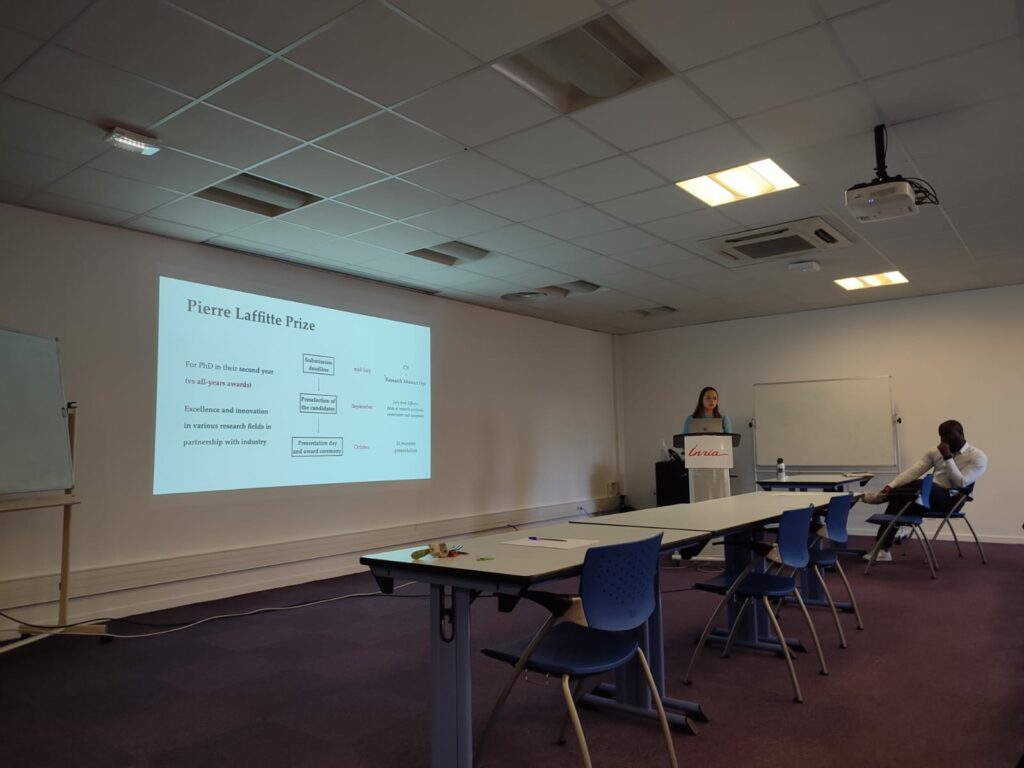
PhD seminars – 5 december, 2022
Harikrishna Kuttivelil – Diana team
Exploring community structures in the field of decentralised artificial intelligence
Abstract:As the number of connected devices continues to increase exponentially and intelligent applications and services continue to permeate these devices, the network edge has become a critical space for communication and intelligence infrastructures. The symbiotic relationship at the intersection of edge computing and artificial intelligence has resulted in the emergence of a new field, edge intelligence, gaining prominence in many domains, including IoT, sensor networks, autonomous vehicles, and more. Yet, intelligence networks at the edge face unique challenges compared to those at the network core, including network volatility, instability, and other communication challenges.
In this research, we consider the decentralization of intelligence networks as an enabling technology for edge intelligence while being cognizant of both the networking and learning aspects of such systems. To this end, we aim to exploit the evolving network and application affinities of the agents in a decentralized learning network to dynamically form communities of collaboration, in which agents collaborate on training and inference. In doing so, we are developing a framework to facilitate this process. As we apply this framework to real-world applications such as next-word prediction on mobile devices and environmental monitoring on heterogeneous sensor networks, the question arises: how can we evaluate such systems? As such, we also aim to answer this question by developing simulation platforms and tools that allow us to model both applications and networks to properly understand the overall performance of these systems and the interactions between the application and networking aspects.
Flash presentations:
David Loiseaux – Datashape team
Flash_Presentation_PhD_seminars_INRIA_SAM_David_Loiseaux_5122022
Adel Malik Annabi – McTao team
Flash_Presentation_PhD_seminars_INRIA_SAM.pptx_McTao_5122022
PhD seminars – 21 November, 2022
Mamoutou Diarra – Inria DIANE team
Titre: Mécanismes améliorés de la couche de transport pour les réseaux cellulaires assistés par MEC.
Abstract: Addressing transport-layer issues in cellular networks is still a hot research topic, despite the fact that a wide range of solutions have been proposed over the last decades. One reason that could explain this phenomenon is the difficulties in the real-world adoption of the proposed solutions as they require either drastic changes in the cellular network protocol stack (in the UE and/or in the base station) or a standardization effort so that TCP headers can include radio information. Another reason is the fact that most of these solutions are effective only in a few scenarios and fail to mitigate the transport-layer issues considered on a global or large scale.
Flash presentations:
Nicolas Valade – Calisto team
PhD seminars – 7 November, 2022
Bernard-Tamba Sandouno – Équipe DIANE
Title: Accurate Mobile signal Power estimation
Abstract:
Ray Tracing is a propagation modelling approach that accurately estimates the signal power received by end users while taking into account the details of the environment in their vicinity. This accuracy is at the cost of high computational load and high memory consumption due to the heavy computation performed by processes such as Ray Generation. In this presentation, we will introduce a site-specific ray generation technique that is able to generate up to 1 million rays within 5 seconds and a root mean square error for bandwidth estimation within 2 Mbps.
Depending on the location of the antenna and the coverage area, our technique gives the minimum possible number of rays required in order to estimate end-users’ signal power received and their download bitrate.
Flash presentations:
Marielle Péré – Biocore team
Modeling heterogeneous cancer drug responses in isogenic single-cells to predict drug-tolerant persisters
Flash_Presentation_PhD_seminars_INRIA_SAM_Marielle_Péré_20221107





